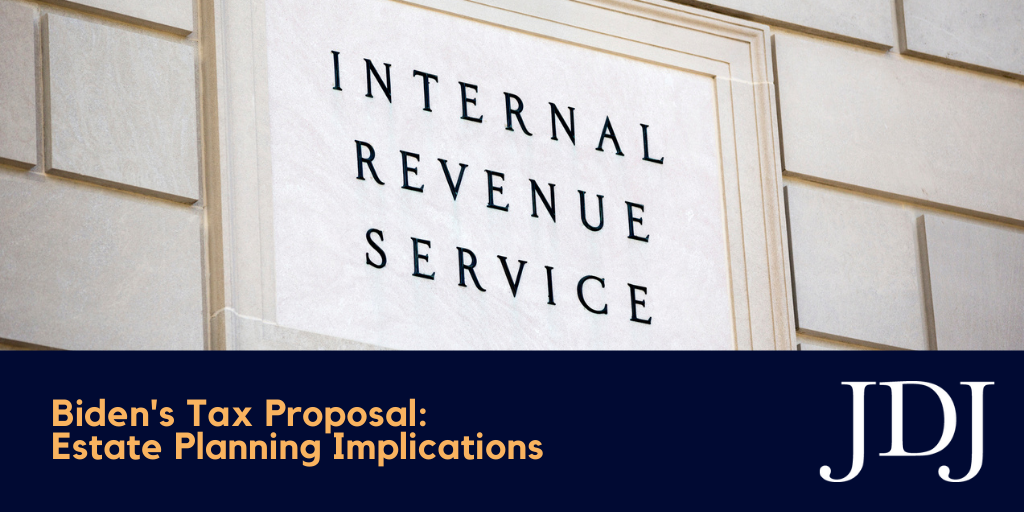Biden Tax Proposal: Estate Planning Implications

Update: It now appears the gift/estate and GST lifetime exemptions and modifications to grantor trust rules may be excluded from the revised plan known as the Build Back Better Act. We will provide additional updates once the bill has passed.
The September 13 tax proposal from the House Ways and Means Committee contains many significant changes to gifting rules and estate planning that could greatly affect high net worth (HNW) individuals. This final installment of our 3-part series focuses on the proposed changes of this legislation, which should be closely considered for planning purposes as we approach year-end.
- Gift/estate and GST lifetime exemptions
- The proposal would roll back the gift/estate and GST lifetime exemptions to one-half the current levels (set in 2017), effective January 1, 2022. The new exemption amount would be $5 million, indexed for inflation dating back to 2010. Previously, this reduction was not scheduled to take place until January 1, 2026.
- Planning Consideration: Individuals who have not yet used their full lifetime exemption might consider making additional gifts before 12/31/2021 to take advantage of the higher limits. We recommend discussing with your estate attorney and tax advisors.
- Modifications to estate tax valuation rules
- Disallowance of discounts due to partial ownership/lack of control or lack of marketability of an asset in determining its value as part of an estate. This rule would apply only to assets that are not used in business. It would also be limited to passive assets. These discounts would still be permitted for family farms and businesses in the same way as current law.
- New rules for Grantor Trusts (applicable for (1) new grantor trusts created after the new tax bill is enacted, and/or (2) contributions of assets to grantor trusts on or after such date)
- Inclusion of grantor trusts in the grantor’s gross estate at death.
- Distributions made during the life of the grantor would be deemed taxable gifts. Additionally, changing the trust from grantor to non-grantor status would constitute a gift.
- Sales of assets between a grantor trust and the grantor would be a taxable transaction (i.e., tax paid by the grantor). Conversely, losses would not be deductible in this situation.
- Existing grantor trusts would still be out of the grantor’s estate. Distributions from existing trusts would not be gifts, so long as they are made from assets previously contributed to the trust.
- Planning Considerations:
- Types of trusts that could be affected by these new rules are: Intentionally Defective Grantor Trusts (IDGTs), Grantor Retained Annuity Trusts (GRATs), Irrevocable Life Insurance Trusts (ILITs), and Spousal Lifetime Access Trusts (SLATs).
- Individuals who have considered setting up and funding a grantor trust might want to do so now to take advantage of the favorable treatment.
- If grantor trusts are already in place, it is worth reviewing with your estate planning and tax advisors to consider whether any adjustments should be made to estate planning strategies.
- Grantors of ILITs might consider accelerating gifts to these trusts to pay life insurance policies, to avoid having a portion of the death benefit included in the grantor’s estate.
Because individual situations vary in terms of structure and complexity when it comes to tax planning, it is important to work with qualified advisors and tax professionals to evaluate and develop an appropriate strategy. Please contact a member of your JDJ team for assistance.



















